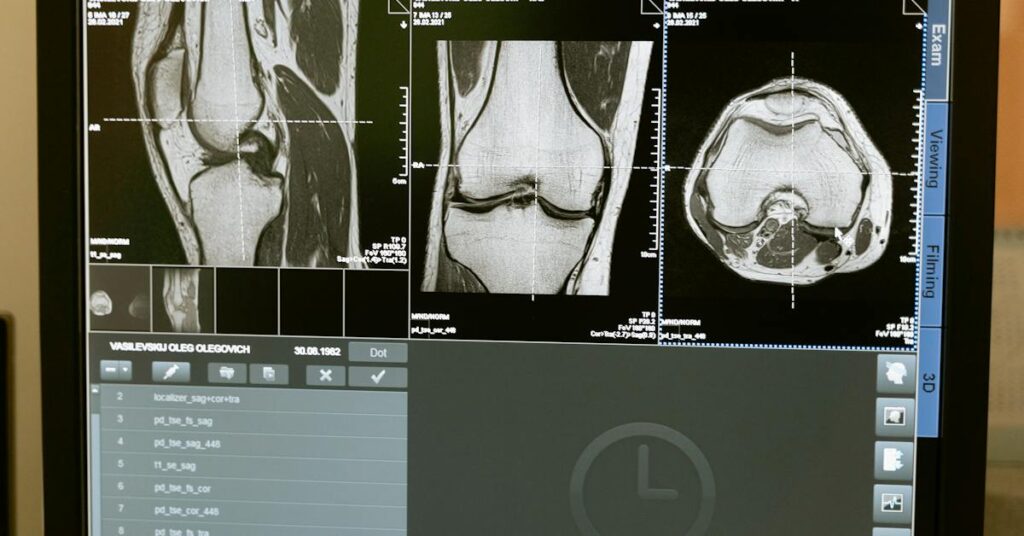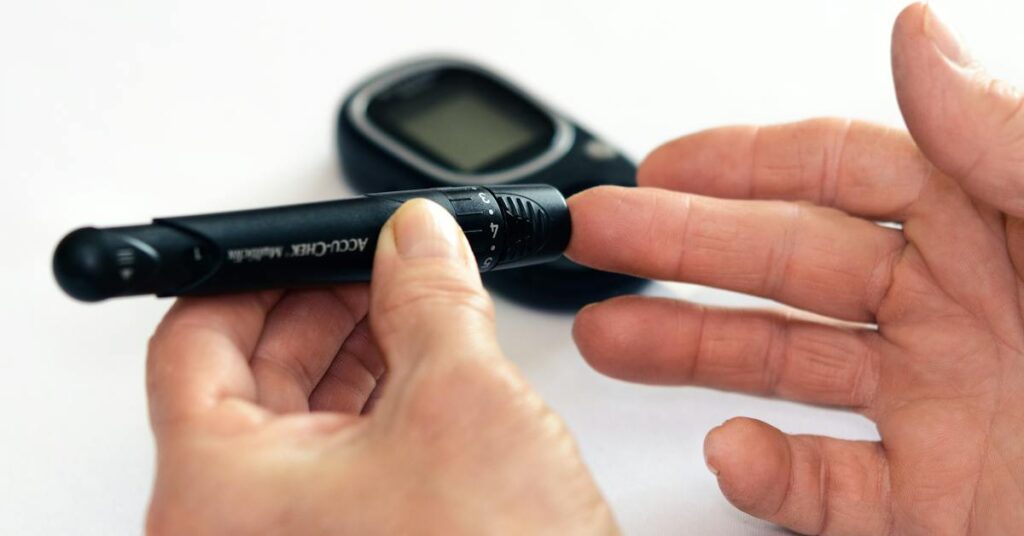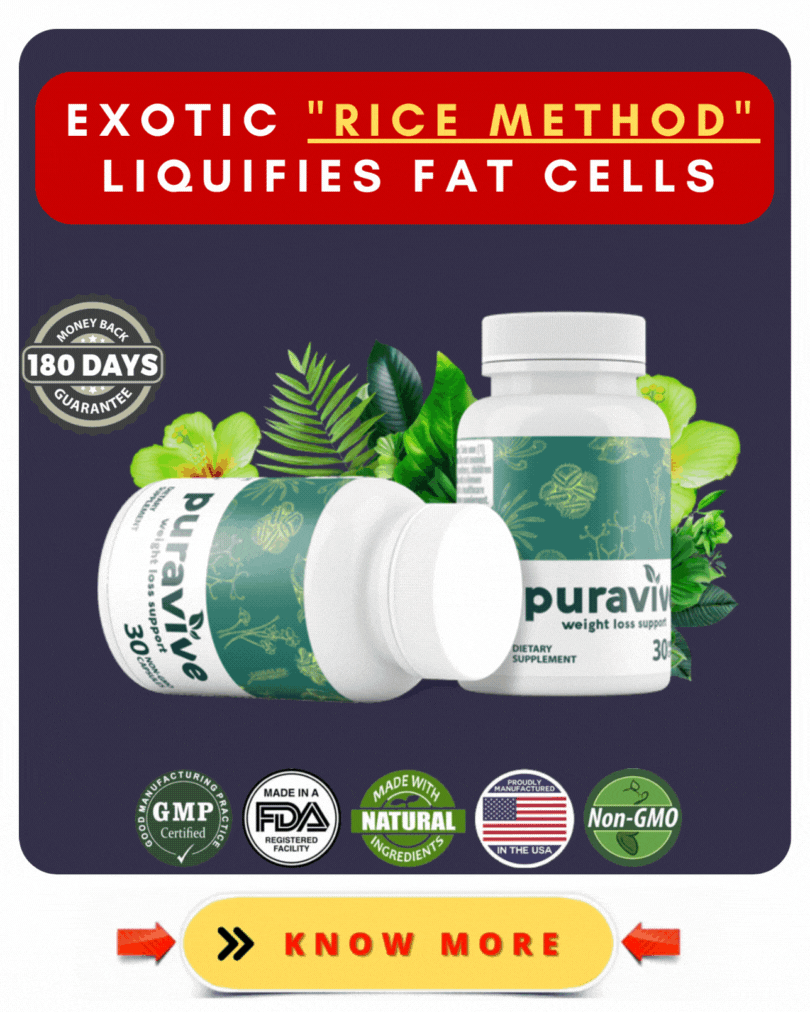Fava beans, frequently overlooked, reveal a remarkable array of health benefits, positioning them as a valuable inclusion in your diet. Exploring the spectrum of advantages, from fortifying heart health to facilitating weight management, underscores the significance of embracing the “Health Benefits of Fava Beans” in your daily meals.
What Are Fava Beans?

What are Fava beans, scientifically known as Vicia faba, are a type of legume that has been cultivated for thousands of years. Also referred to as broad beans or horse beans, these green pods contain large, flat seeds that are the edible part of the plant. Fava beans have a distinct earthy flavor and a slightly creamy texture, making them a versatile ingredient in various cuisines.
Characterized by their unique appearance, fava beans are recognized for their large size compared to other common beans. The plants produce pods that house multiple beans, each nestled within a soft, spongy lining. These legumes come in various shades of green, and their taste can range from mildly sweet to slightly bitter, depending on factors such as maturity and preparation.
Rich in nutrients, fava beans are a valuable source of protein, fiber, vitamins, and minerals. They contribute not only to culinary diversity but also to the nutritional profile of a well-balanced diet. Whether enjoyed fresh in their pods, shelled for the individual beans, or incorporated into a variety of dishes, fava beans offer a nutritious addition to the world of legumes.
SIMILAR POST: 5 Best Nutrient-Rich Alternatives Over Unhealthy Breakfast Options
Fava Beans Nutrition Facts Chart
| Nutrient | Amount per 100g |
|---|---|
| Calories | 88 kcal |
| Protein | 7.6 g |
| Total Fat | 0.5 g |
| Saturated Fat | 0.1 g |
| Carbohydrates | 15.7 g |
| Dietary Fiber | 5.4 g |
| Sugars | 0.8 g |
| Calcium | 33 mg |
| Iron | 1.5 mg |
| Magnesium | 33 mg |
| Phosphorus | 103 mg |
| Potassium | 1062 mg |
| Sodium | 13 mg |
| Vitamin C | 2.2 mg |
| Thiamine (Vitamin B1) | 0.3 mg |
| Riboflavin (Vitamin B2) | 0.1 mg |
| Niacin (Vitamin B3) | 1 mg |
| Vitamin B6 | 0.2 mg |
| Folate (Vitamin B9) | 42 µg |
| Vitamin K | 4.5 µg |
Health Benefits of Fava Beans:
1. The Cholesterol-Lowering Power of Fava Beans

Fava beans, often celebrated for their culinary versatility, bring more to the table than just taste. One standout feature is their rich soluble fiber content, which plays a pivotal role in promoting heart health by potentially lowering cholesterol levels.
Soluble Fiber and Cholesterol Regulation: The soluble fiber found abundantly in fava beans acts as a natural ally in the quest for healthier cholesterol levels. This type of fiber has the remarkable ability to bind to cholesterol in the digestive system, aiding in its removal from the body. Scientific studies, both on healthy adults and those with elevated cholesterol levels, consistently highlight the positive impact of soluble fiber on blood cholesterol.
Healthy Bowel Movements and More: Beyond its cholesterol-lowering effects, soluble fiber contributes to digestive well-being. By absorbing water in the gut, it forms a gel-like substance, softening stool and promoting regular bowel movements. This dual action not only supports gastrointestinal health but also enhances the overall efficiency of nutrient absorption.
Scientific Insights: Research speaks volumes about the cholesterol-modulating prowess of fava beans. In a notable three-month study involving 53 healthy adults, a modest increase in soluble fiber intake resulted in a significant 12.8% decrease in “bad” LDL cholesterol. Conversely, the group with lower fiber consumption experienced no substantial changes in their LDL levels.
Furthermore, a comprehensive review of 10 studies focused on fiber-rich legumes, including fava beans, revealed that diets incorporating these legumes were associated with noteworthy reductions in both total cholesterol and LDL cholesterol levels.
A Delicious Approach to Heart Health: If you’re on a mission to improve your cholesterol profile, consider adding fava beans to your culinary repertoire. Whether tossed into salads, blended into dips, or incorporated into hearty stews, these legumes not only contribute to a flavorful dining experience but also offer a delectable strategy to support your cardiovascular well-being.
2. Fava Beans and Parkinson’s Disease

Fava beans, beyond being a culinary delight, harbor a unique compound known as levodopa (L-dopa), a precursor to the neurotransmitter dopamine. This compound holds promise in potentially alleviating symptoms associated with Parkinson’s disease, a neurodegenerative condition characterized by a decline in dopamine-producing brain cells.
The Link between L-dopa and Parkinson’s: Parkinson’s disease manifests when the death of dopamine-producing cells disrupts normal motor function, leading to symptoms like tremors and difficulty in movement. Medications containing L-dopa are commonly prescribed to manage these symptoms by supplementing the diminished dopamine levels.
Fava Beans and Symptom Relief: Research suggests that incorporating fava beans into the diet may offer a natural approach to symptom relief for individuals with Parkinson’s disease. A small-scale study involving 11 participants revealed that consuming 1.5 cups (250 grams) of fava beans after a 12-hour medication hiatus had a comparable positive impact on both blood dopamine levels and motor function when compared to traditional L-dopa drugs.
Similarly, another study involving six adults with Parkinson’s found that consuming 100–200 grams (approximately 1–1.75 cups) of fava beans alongside the anti-Parkinson’s medication carbidopa yielded improvements in symptoms equivalent to those achieved with conventional drug combinations.
Promising Yet Preliminary: While these findings are promising, it’s crucial to recognize the preliminary nature of the research. Further studies with larger sample sizes are warranted to establish the full extent of fava beans’ potential in managing Parkinson’s symptoms. Importantly, it’s essential to note that while fava beans are rich in L-dopa, they should not be considered a substitute for prescribed medications. They can, however, be viewed as a complementary dietary element that may offer additional support in the management of Parkinson’s disease symptoms.
3. Fava Beans to Prevent Birth Defects

Fava beans stand out as a nutritional powerhouse, particularly for expecting mothers, as they are abundant in folate—a crucial nutrient that plays a vital role in ensuring the healthy development of the fetus.
Folate and Fetal Development: Folate, also known as vitamin B9, is indispensable for the creation of cells and organs in the developing fetus. Expectant mothers require additional folate, both from dietary sources and supplements, to mitigate the risk of neural tube defects. These defects can adversely affect the development of the infant’s brain and spinal cord, making folate intake an essential aspect of prenatal care.
Global Impact and Preventative Measures: Neural tube defects remain a significant global concern, with an estimated 260,000 infants born worldwide in 2015 affected by such issues. Adequate maternal folate intake is considered a preventive measure, potentially averting a substantial portion of these cases.
Research Insights: A study involving over 23,000 women shed light on the impact of dietary folate on fetal health. The incidence of brain and spinal cord issues was found to be 77% lower in infants born to mothers with the highest daily intake of dietary folate compared to those born to women with the lowest intake. These findings underscore the pivotal role of folate in safeguarding the developing nervous system.
Fava Beans: A Folate-Rich Choice: In just one cup (170 grams) of fava beans, you can find a remarkable 40% of the Daily Value (DV) for folate. This makes fava beans an excellent dietary choice for pregnant women, providing a natural and flavorful way to enhance their folate intake and support the optimal development of their growing infants.
As a nutrient-dense addition to the maternal diet, fava beans contribute not only to the palate but also to the comprehensive nutritional requirements crucial for a healthy pregnancy.
4. Fava Beans Boost Your Immune System

Incorporating fava beans into your regular diet may offer more than just culinary delight—they could potentially give your immune system a valuable boost.
Antioxidant Richness: Fava beans stand out as a rich source of compounds known to enhance antioxidant activity. Antioxidants play a pivotal role in the body’s immune defense by combating free radicals that can contribute to cell damage and various diseases.
Immune Defense in Action: Studies have shown that fava beans contain compounds with the potential to increase antioxidant activity significantly. In a test-tube study, human lung cells treated with extracts from fava beans exhibited an impressive 62.5% boost in antioxidant activity. This underscores the immune-boosting potential of these legumes at a cellular level.
Glutathione Support: Fava beans also contain compounds that have demonstrated the ability to enhance the effectiveness of glutathione, a powerful antioxidant present in human cells. This enhancement contributes to cellular health and has been associated with delaying the aging process at the cellular level.
Potential Benefits, Uncertain Real-world Impact: While these findings are promising, it’s essential to note that the studies were conducted on isolated cells treated with fava bean extracts. The direct translation of these immune-boosting effects to individuals consuming fava beans as part of their regular diet is not yet clearly established.
As you savor the flavors of fava beans, you may also be nourishing your immune system with potential benefits. However, ongoing research is needed to fully understand the real-world impact of regularly incorporating fava beans into our diets and unlocking the immune-boosting properties they may hold.
SIMILAR POST: Wellness on Your Plate: Transforming Unhealthy Breakfast Habits with Smart Choices
5. Fava Beans For Bone Health

Delving into the nutritional composition of fava beans reveals a significant presence of manganese and copper—two key nutrients that could play a role in preventing bone loss and supporting overall bone health.
Nutrient Richness: Fava beans stand out as a valuable source of manganese and copper, both of which have been linked to potential benefits in maintaining bone density.
The Unclear yet Crucial Role: While the exact mechanisms of manganese and copper in bone health are not fully understood, studies in rats have suggested that deficiencies in these minerals might contribute to decreased bone formation and increased calcium excretion. Human research further underscores the importance of manganese and copper in maintaining robust and resilient bones.
Human Studies Highlighting Bone Strength: In a one-year study involving postmenopausal women with weakened bones, a supplement containing manganese and copper, alongside vitamin D, calcium, and other nutrients, demonstrated notable improvements in bone mass. This suggests that these minerals may contribute significantly to bone strength, especially in populations vulnerable to bone-related issues.
Combination Benefits: Further research has explored the synergistic effects of manganese and copper when combined with calcium and zinc. Studies indicate that this combination may have a protective effect, helping to prevent bone loss in healthy older women.
As part of a nutrient-rich diet, fava beans contribute not only to culinary diversity but also potentially to the preservation of bone health. While the exact role of manganese and copper in bone health continues to be studied, incorporating fava beans into your meals could be a flavorful and nutritious strategy for supporting the strength and integrity of your bones.
6. Fava Beans: A Natural Remedy for Anemia

Embracing the nutritional bounty of fava beans may offer a natural solution to alleviate the symptoms of anemia, a condition often characterized by fatigue, weakness, dizziness, and shortness of breath.
Iron’s Crucial Role: Iron is a vital component in the production of hemoglobin—the protein responsible for enabling red blood cells to transport oxygen throughout the body. An insufficient intake of iron can lead to anemia, a condition that significantly impacts overall well-being.
The Impact of Iron Deficiency: A study involving 200 young women highlighted the connection between dietary iron intake and anemia. Those reporting insufficient iron in their diets were six times more likely to experience anemia compared to those with adequate iron intake. This underscores the importance of maintaining a sufficient iron supply to prevent the onset of anemia-related symptoms.
Fava Beans and Blood Iron Levels: Regularly incorporating fava beans, rich in iron, and other plant-based iron sources into your diet may contribute to increased blood iron levels and an improvement in anemia symptoms. However, it’s crucial to note that the type of iron present in fava beans is better absorbed in the presence of vitamin C.
Enhancing Iron Absorption with Vitamin C: To optimize the absorption of iron from fava beans, pairing them with vitamin C-rich foods, such as citrus fruits or bell peppers, can be beneficial. This combination enhances the body’s ability to absorb non-heme iron, the form of iron found in plant-based sources like fava beans.
Considerations for Genetic Factors: While fava beans can be a nutritional asset for many, individuals with glucose-6-phosphate dehydrogenase deficiency, a genetic disorder, should exercise caution. Consumption of fava beans by individuals with this condition may lead to a specific type of blood issue known as hemolytic anemia.
As a flavorful and nutrient-dense addition to your diet, fava beans showcase their potential not just in culinary diversity but also in offering a natural remedy for addressing iron deficiency and mitigating the symptoms of anemia.
7. Fava Beans Improve High Blood Pressure:

Unlocking the potential of fava beans reveals a nutritional profile rich in magnesium and potassium—two essential elements that may play a key role in enhancing heart health.
Magnesium and Potassium for Cardiovascular Wellness: The magnesium and potassium content in fava beans suggests significant benefits for cardiovascular health. These minerals are known to have vasodilatory effects, promoting the relaxation of blood vessels and potentially preventing the onset of high blood pressure.
DASH Diet and Blood Pressure Control: Numerous studies, including those on the Dietary Approaches to Stop Hypertension (DASH) Diet, emphasize the positive impact of consuming foods high in potassium and magnesium for reducing high blood pressure. The DASH Diet, with its focus on these heart-healthy nutrients, has shown efficacy in managing and preventing hypertension.
Magnesium’s Protective Role: Insights from a 10-year study involving 28,349 women further highlight the potential of magnesium in maintaining healthy blood pressure levels. Women with the highest dietary intake of magnesium demonstrated a lower likelihood of developing high blood pressure compared to those with lower magnesium intakes. This underscores the protective role of magnesium in cardiovascular health.
Fava Beans as Heart-Healthy Allies: Incorporating fava beans into your diet, alongside other foods rich in magnesium and potassium, may contribute to the lowering of blood pressure and overall improvement in heart health. As a flavorful and nutrient-packed addition to your meals, fava beans offer a delicious way to support the well-being of your cardiovascular system.
Based on the available research, crafting a diet that includes fava beans aligns with a heart-healthy lifestyle, promoting the relaxation of blood vessels and the potential prevention of high blood pressure.
8. Fava Beans for Weight Loss

If you’re looking to trim your waistline, consider making fava beans a star player in your dietary repertoire. These legumes offer a potent combination of protein and fiber, making them not only a delicious addition to your meals but also a potential ally in your weight loss journey.
Protein and Fiber Power Duo: A one-cup (170-gram) serving of fava beans delivers a remarkable 13 grams of protein and 9 grams of fiber—all within a modest calorie count of just 187. This protein-fiber duo is known for its ability to enhance feelings of fullness, potentially leading to a reduced calorie intake and, ultimately, supporting weight loss.
Protein and Fullness: Studies affirm the impact of a diet rich in protein on feelings of fullness. In a small study involving 19 adults, a diet with 30% of calories from protein led to increased feelings of fullness and a significant decrease in daily calorie intake compared to a diet with the same calorie count but only 15% from protein. This suggests that incorporating protein-rich foods, like fava beans, can play a role in curbing appetite and promoting weight loss.
Fiber’s Weight Loss Role: The benefits extend further with the inclusion of fiber. A four-year study involving 522 individuals found that those on a high-fiber diet, surpassing 15 grams of fiber per 1,000 calories, lost over five pounds (2.4 kg) more than those on a lower-fiber diet. This highlights the contribution of fiber-rich foods, such as fava beans, to successful weight management.
Fava Beans for Weight Loss Goals: Adding fava beans to your diet can be a flavorful and satisfying way to harness the potential benefits of protein and fiber. Whether tossed into salads, blended into dips, or incorporated into hearty stews, fava beans provide a nutrient-dense and waistline-friendly option to support your weight loss goals.
Incorporate protein- and fiber-rich fava beans into your meals and savor their taste and the potential positive impact on your journey to a healthier, trimmer you.
9. Fava Beans for Diabetics

For individuals managing diabetes, fava beans can be a valuable and flavorful addition to their dietary repertoire. Packed with nutrients and offering various culinary possibilities, these legumes can be incorporated into meals with considerations for glycemic impact. Here’s why fava beans can be a diabetes-friendly choice:
1. Low Glycemic Index (GI): Fava beans have a relatively low glycemic index, which means they have a minimal impact on blood sugar levels. This makes them a favorable choice for individuals looking to manage their blood glucose levels.
2. Rich in Fiber: Fava beans are an excellent source of dietary fiber. Fiber plays a crucial role in regulating blood sugar by slowing down the absorption of glucose. This can contribute to better blood sugar control for individuals with diabetes.
3. Plant-Based Protein: With 13 grams of protein per one-cup serving, fava beans provide a substantial plant-based protein source. Including protein in meals can help stabilize blood sugar levels, reducing the post-meal spike.
4. Nutrient Density: Fava beans are nutrient-dense, offering essential vitamins and minerals. This nutrient profile supports overall health and can be part of a well-balanced diet for individuals with diabetes.
5. Culinary Versatility: Fava beans can be prepared in various ways—steamed, roasted, mashed, or added to dishes. This versatility allows for creative and delicious meal options, ensuring a diverse and enjoyable diet.
Tips for Incorporating Fava Beans:
- Monitor portion sizes to maintain a balanced intake of carbohydrates.
- Combine fava beans with other diabetes-friendly foods, such as non-starchy vegetables and lean proteins.
- Consider different cooking methods to find the most appealing and satisfying way to enjoy fava beans.
While fava beans can be a positive addition to a diabetes-friendly diet, individuals with diabetes need to consult with their healthcare team or a registered dietitian for personalized dietary guidance. With mindful choices and proper portion control, fava beans can contribute to a diverse and nutrient-rich diet for those managing diabetes.
10. Versatile and Easy to Add to Your Diet

Fava beans, with their rich taste and versatile nature, can elevate your meals and snacks to a whole new level. Here’s a simple guide on how to prepare and enjoy these delectable legumes:
1. How to prepare fava beans:
- Start by removing the inedible green pods.
- Boil the beans for a quick 30 seconds.
- Transfer them to a bowl of ice water to soften the waxy outer coating.
- Peel off the outer layer to reveal the tender, edible beans.
2. Enjoying Whole or Smashed:
- Steamed, peeled fava beans can be tossed in olive oil and your favorite seasonings for a delightful whole-bean experience.
- Alternatively, smash the beans and incorporate them on top of bread or as a flavorful addition to various dishes.
3. Roasting for Intense Flavors:
- For a roasted twist, boil the fava beans for 30 minutes, drain, and then toss them in olive oil and seasonings.
- Spread the seasoned beans on a baking sheet and roast for an additional 30 minutes at 375℉ (190℃) until they achieve a delightful crispiness.
4. Culinary Creativity:
- Incorporate cooked fava beans into salads for a burst of texture and flavor.
- Enhance rice dishes, risotto, and pasta by adding tender beans for a nutritional boost.
- Elevate soups and pizzas with the unique taste and nutritional profile of fava beans.
Tips for Culinary Success:
- Experiment with various seasonings, herbs, and spices to customize the flavor of your fava beans.
- Consider combining fava beans with other ingredients like cherry tomatoes, feta cheese, or fresh herbs for a well-rounded dish.
- Get creative in the kitchen and let the versatility of fava beans inspire your culinary adventures.
Embrace the culinary journey with fava beans, turning ordinary meals into extraordinary culinary experiences. Whether enjoyed whole, smashed, or roasted, these legumes promise a symphony of flavors to tantalize your taste buds.
Conclusion
A wealth of health benefits can be found in fava beans, which are packed with nutrients. Regular consumption may contribute to alleviating symptoms of Parkinson’s disease, preventing birth defects, enhancing immunity, facilitating weight loss, and reducing cholesterol levels and blood pressure. Despite limited research, fava beans stand as an excellent and versatile inclusion in a health-conscious, balanced diet, emphasizing the profound health benefits of fava beans. Further studies are warranted to delve deeper into their impact on human health.
1. Are fava beans suitable for people with diabetes?
Yes, fava beans can be beneficial for individuals managing diabetes due to their role in blood sugar regulation.
2. Do fava beans cause allergies?
While rare, some individuals may be allergic to fava beans. It’s essential to be aware of any allergic reactions.
3. fava beans for weightloss diet?
Absolutely! The combination of protein and fiber in fava beans can aid in weight management by promoting a feeling of fullness.
4. Are fava beans a good source of plant-based protein?
Yes, fava beans are an excellent source of plant-based protein, making them ideal for vegetarians and vegans.
5. How can I incorporate fava beans into my meals?
Fava beans are versatile and can be added to salads, soups, stews, and more. Get creative with your recipes!

